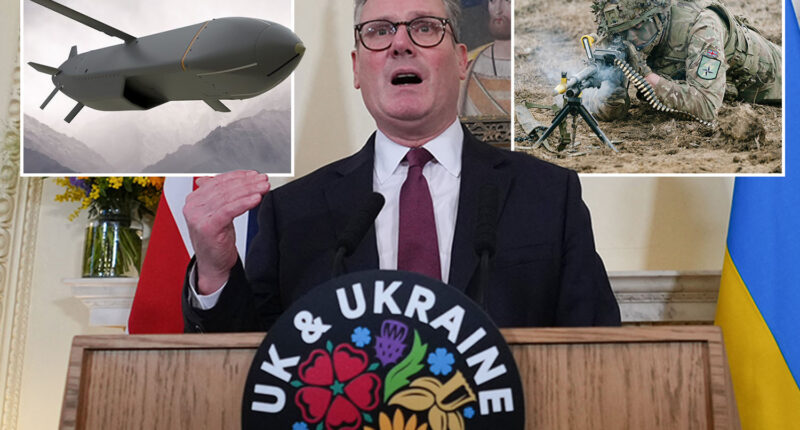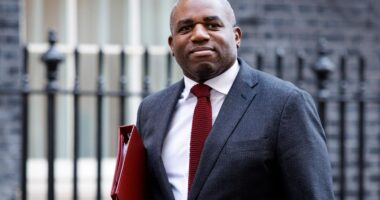SIR Keir Starmer will today set out a path to hike defence spending to 2.5 per cent of GDP.
In a move slammed as “too little too late”, the PM will pledge to boost military funding immediately.

It comes just a day before Sir Keir jets off to Washington DC for a showdown meeting with Donald Trump.
The US President has demanded European leaders drastically increase their defence budgets rather than relying on America.
Sir Keir had previously promised to increase military spending to 2.5% of GDP but had not set a specific timeline to achieve this goal before the election.
Mounting calls from Mr Trump, NATO leaders, military top brass and the Tories to reach the target have been growing in recent weeks.
A renewed urgency also comes from peace talks to end the war in Ukraine, where Sir Keir has committed to put British boots on the ground.
However, he has rejected calls from top military officials to raise defense spending to potentially 2.65% of GDP, a decision that could require an additional £10 billion.
Cabinet departments have been bracing for deep spending cuts in order to fund the massive armed forces cash injection.
During a gathering marking the third anniversary of the conflict in Ukraine, Sir Keir stated that Ukraine’s battle against Russia is not just their own, but it also concerns the wider community.
The PM said: “This is bigger than Ukraine – it is, of course, about Ukrainian sovereignty but it not just Ukrainian sovereignty.
“It is about our way of life, our freedoms, about security and defence in Europe, and security and defence here in the United Kingdom, and the values that we hold dear.”
Tory leader Kemi Badenoch this morning said that the 2.5 per cent “is now no longer sufficient”.
She said: “Rebuilding will be achieved by having a plan to rearm based on an efficient, focused military, equipped with, and trained to use, the new kinds of weapons we have seen deployed to devastating effects in Ukraine.
“We also need to be honest enough to admit that military procurement still needs a fundamental redesign to be faster, more responsive and to deliver better value for taxpayers.
“The message should be simple: we must do what it takes to protect Britain.”

















